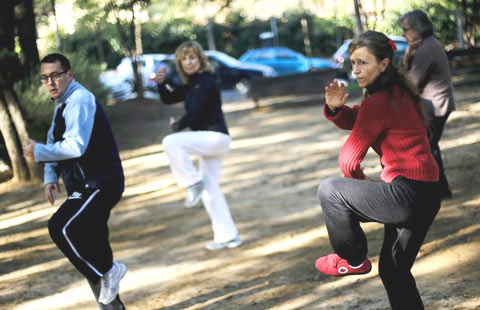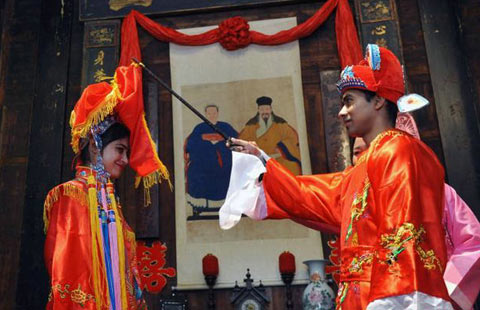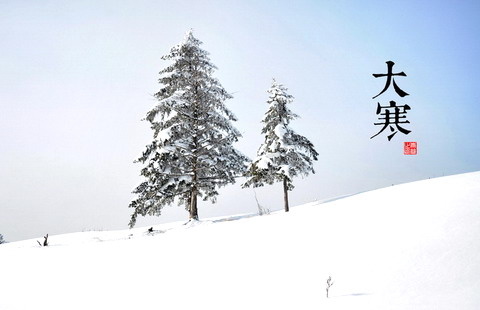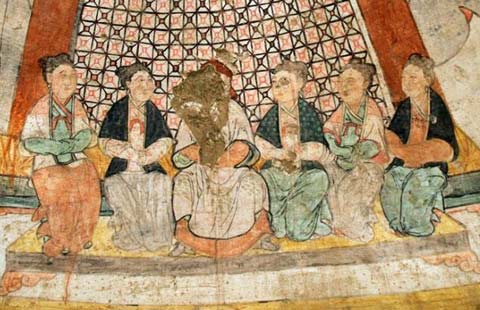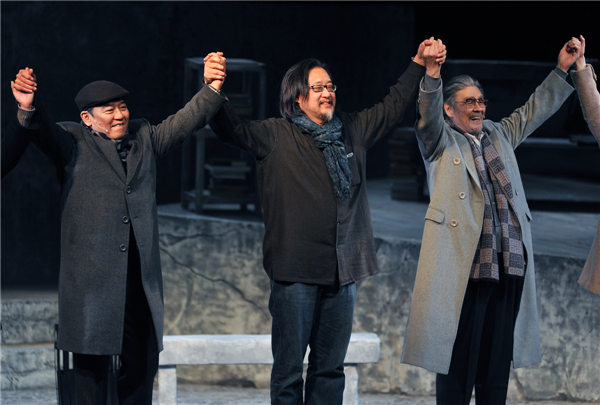 |
|
Actors Lichun Lee (left) and Lan Tianye (right) take a bow with director Stan Lai.
|
For all the historical gravitas, the two actors do not turn their characters into abstract types, but retain their humanity and moral complexity. They are not as simple as offender and offended. The scale of sin is in constant but subtle shift, ultimately pivoted by honesty and forgiveness. While the two men are not religious, religious notions and symbols are conjured up in the climax scene when a bombed-out German cathedral becomes the stand-in for their heavily scarred worlds.
Another German element is Schubert's song cycle Winterreise, which serves as more than Jin's hobby, but as a central motif, with a pianist and a singer performing intermittently on an elevated part of the stage, that is a Greek chorus, a provider of internal monologue, and a cathartic interlude all rolled into one. Sometimes I get a feeling that, on a literary and artistic level, the play is a prolonged game between Schubert with his Winterreise and T.S. Eliot with his The Waste Land, which is quoted less often but figures no less significantly in this richly layered cerebral work.
Sandra Woodall's visual design of the stage and the projection adds one more layer to the tapestry of golden years set against a bleak background. You can also say she brought out what's hidden in the deep abyss of the characters' consciousness. The multiple translucent curtains, of various sizes and locations, appear from time to time to display the Chinese translation of the Schubert songs and slivers of the landscape.
Winter Journey debuted at Beijing's Poly Theater on Jan 16 for a three-day run and, as is the Chinese custom, will have periodic short runs across the country.


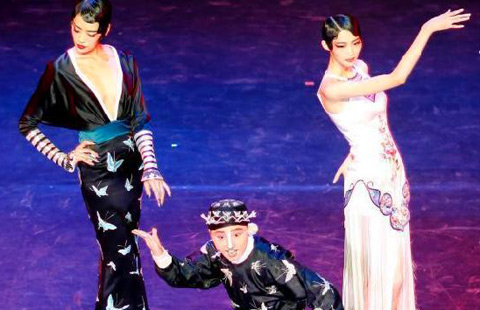

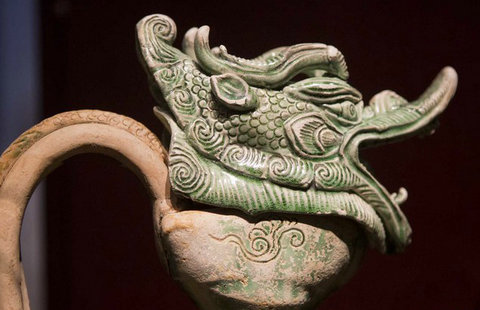


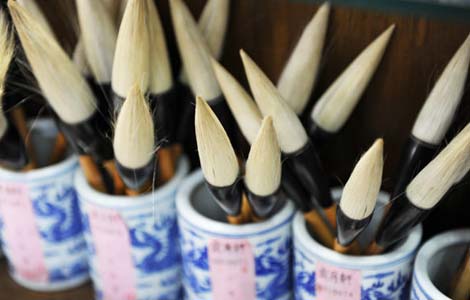

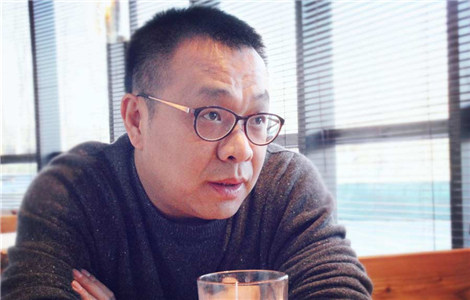














 Raymond Zhou:
Raymond Zhou: Pauline D Loh:
Pauline D Loh: Hot Pot
Hot Pot Eco China
Eco China China Dream
China Dream China Face
China Face
